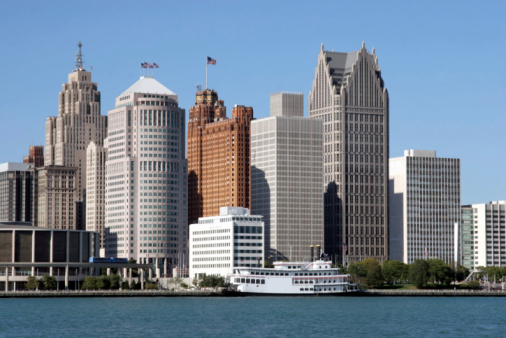Detroit Bankruptcy: As Its Own Worst Enemy, the City Got What It Deserved
Published:
If the residents of the city of Detroit want to blame any person or organization for its Chapter 9 filing, they only need to look as far as the unions that controlled labor there and the politicians who ran it over the past four decades. Detroit earned its bankruptcy the easy way — through greed, the desire for political power and poor planning.
Kevyn D. Orr, the city’s emergency manager, offered all interested parties a likely way to avoid the bankruptcy filing just weeks ago. Employees of Detroit, past and present, could share the pain of the restructuring of financial obligations with bond holders. Each blamed the other for the city’s problems. Each said the other should absorb the brunt of a restructuring. Neither budged. Orr ran out of options, as two city pension funds went to court to try to protect their assets, motivated by a final grab for Detroit’s money.
The media’s take on Detroit was to post pictures of rundown and vacant homes and to publish the estimates of Detroit’s obligations — about $19 billion. The press also has pointed out the clear conclusion that bond owners will take cents on the dollar. Unions will have parts of pension obligations voided. City workers will lose their jobs. The two largest employers in Detroit are the school system and the city itself. These workers dwarf the number employed by General Motors Co. (NYSE: GM) and Chrysler. Ford Motor Co. (NYSE: F) barely has a presence in Detroit any more. Detroit is a city where the employee base is tilted away from private enterprise — a rarity, if not a uniqueness.
Another fact the media mentions as it measures Detroit’s fall from grace is the drop in its population from 1.8 million in 1950 to just above 700,000 in 2010. In fact, if only those two points in time are the basis of an analysis, it is misleading. The city’s population did not start to fall very sharply until after 1970. The 1973 oil crisis that rocketed gas prices up and the deep recession of the early 1970s dealt Detroit’s car industry a blow that made the size of the city’s government unsustainable. Detroit’s tax base began to tumble. Anyone among union leaders and elected officials could look at the numbers. The costs to sustain Detroit as it had been for two decades were impossible to maintain. But the city kept on spending. Unions wanted to keep their power as well as preserve jobs. Politicians did not want to admit they were running a dying city, say as much to voters and begin a battle with unions to lower labor costs. Both parties are to blame. Which should be blamed more cannot be measured exactly.
Bond holders do not deserve the kind of responsibility that those who ran Detroit do. However, they, and their bankers, were willing to keep the city afloat by buying paper that was risky. They took the risk and fed Detroit with money. Now, they get to take the sort of damage that goes with risking to much, too often and for too long.
As the people of Detroit and experts tear apart the history of Detroit, some blame will be placed with the car companies. But they built Detroit — Detroit did not build them. It is not fair to say they destroyed her. As a matter of fact, these public corporations, with obligations to shareholders, may have been among the few wise parties. The Big Three automakers exited slowly, as city services dissolved and Detroit became a less desirable place to live and do business.
Detroit’s elected officials have lost all of their power. Orr has it, and soon a court will. Unions and their members can only wait to see how badly they will will be gored as part of the Chapter 9 process.
In sum, each side knew that the city began to flounder a long time ago, and each tried to hang on to as much money, and privilege, as possible. Now, each gets to suffer the consequences.
The thought of burdening your family with a financial disaster is most Americans’ nightmare. However, recent studies show that over 100 million Americans still don’t have proper life insurance in the event they pass away.
Life insurance can bring peace of mind – ensuring your loved ones are safeguarded against unforeseen expenses and debts. With premiums often lower than expected and a variety of plans tailored to different life stages and health conditions, securing a policy is more accessible than ever.
A quick, no-obligation quote can provide valuable insight into what’s available and what might best suit your family’s needs. Life insurance is a simple step you can take today to help secure peace of mind for your loved ones tomorrow.
Click here to learn how to get a quote in just a few minutes.
Thank you for reading! Have some feedback for us?
Contact the 24/7 Wall St. editorial team.